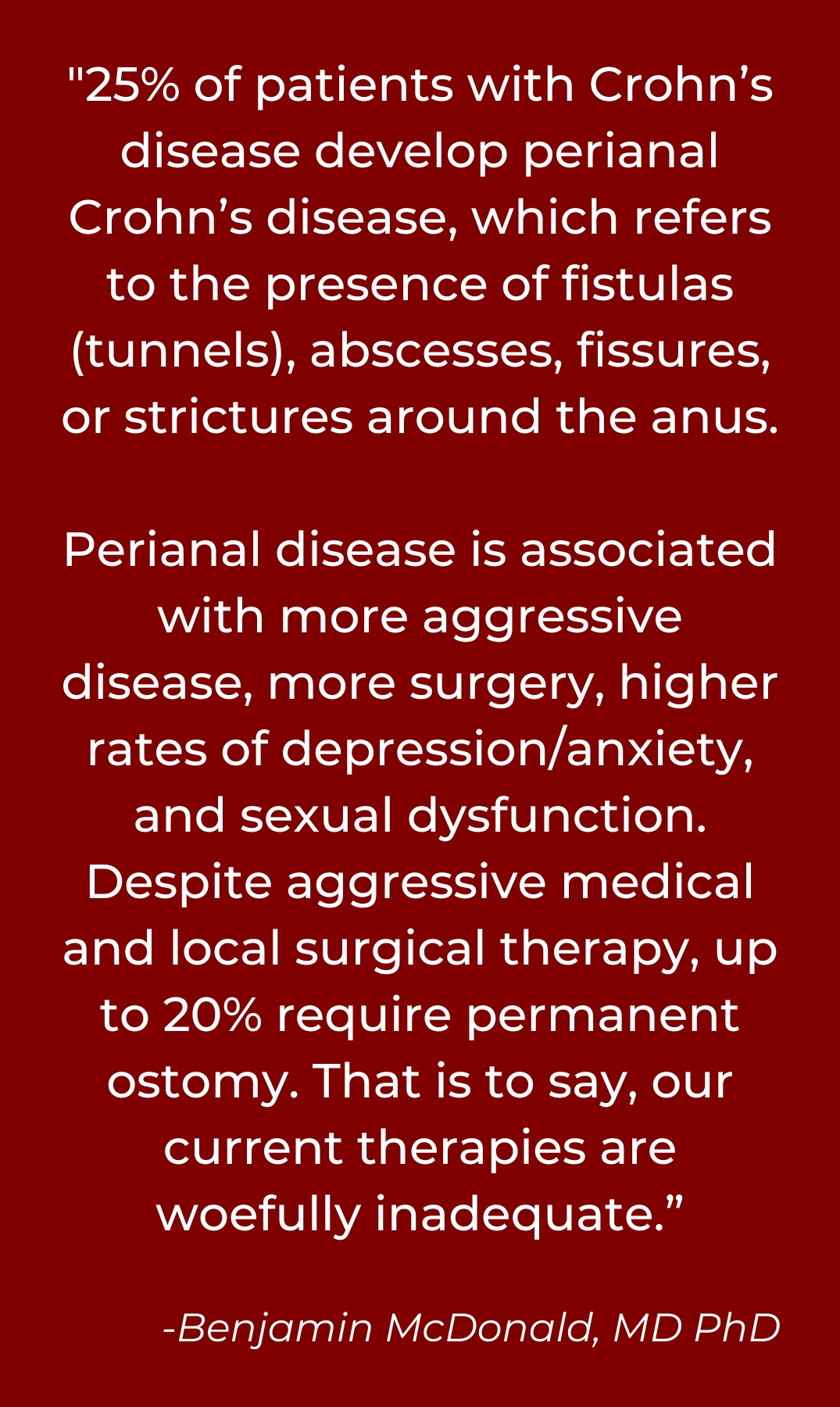Funding Groundbreaking Science Year After Year
With each grant request, we ask, “How will this, or how could this, improve patient outcomes and eliminate suffering?”
2022 Research Grant Awards
Developing New Diagnostic and Therapeutic Strategies for Perianal Crohn’s Disease
Benjamin McDonald, MD PhD
THE PROBLEM
Perianal Crohn’s disease (pCD) is an aggressive form of Crohn’s disease (CD) that causes inflammation around the anus. Symptoms include anal fistulas, abscesses, fissures, and strictures. Perianal Crohn’s disease affects approximately 25% of CD patients and is associated with a more aggressive disease course, including surgical interventions like the removal of the rectum and a permanent ostomy.
THE HYPOTHESIS
-
- Early detection of pCD lesions, before the damage becomes irreversible, is the most effective management strategy.
- Perianal ultrasound can detect early pCD.
- Other inflammatory pathways are active in pCD patients and could lead to new treatment strategies.
THE RESEARCH PLAN
Establish a group of CD patients without known pCD for a long-term study to obtain biopsy specimens, conduct anal canal MRIs, and perform perianal ultrasounds to detect pCD before symptoms emerge.
Establish a group of pCD patients for long-term study to identify an inflammatory signature associated with disease that is resistant to treatment.
Identify inflammatory pathways associated with pCD, which would suggest new therapeutic targets, using single-cell RNA sequencing (scRNAseq) for further analysis.
THE GOAL
-
- Develop a standard protocol for early detection of pCD.
- Use data and analysis to develop new, less invasive treatments that can prevent or reverse pCD.
- Improve quality of life for those with pCD.
THE PROGRESS
With the GI Research Foundation’s generous support, researchers developed an ultrasound-based screening test that can identify pCD in a quick (5-10 minute), painless exam before symptoms exist. Ultrasound findings were validated with an MRI to ensure the results’ accuracy.



